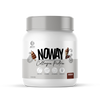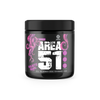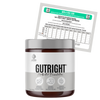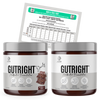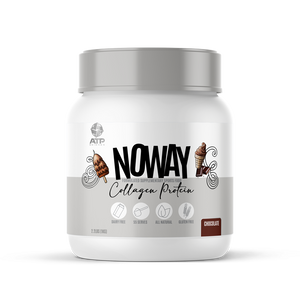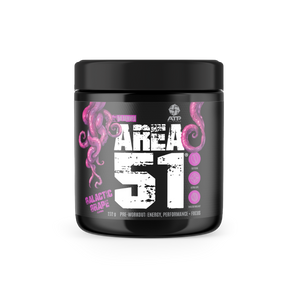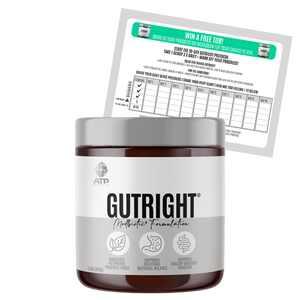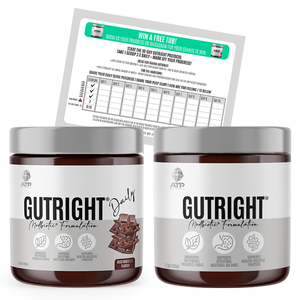5 Ways to get your Collagen in Each Day!

Collagen has become and an international topic of interest, it has boomed in popularity over the last few years and its hard to remember the days it wasn’t there in our regime or discussion around supplementation and diet. When we first launched the Protein a few years back, we thought ok, maybe this will be more of a niche, it was a weird path to go down for a company to specialise in Collagen protein when the industry was so heavily dominant in whey protein options.
Fast forward to 2021 now and look at how the industry and health food world has pivoted on its foot to now include it in so many products, from bars to protein and even collagen coffee to get you up In the AM.
That being said… here is 5 great ways to get your daily dose of collagen in!
1. Noway – Well duh!
Ok, the first one was always going to be obvious let’s be real. Noway, and the new ever-expanding range of the Noway treats features world-leading collagen peptides as a source of protein as well as a functional food for the body. This high-quality source of Hydrolysed Collagen Peptides can be found in the following from our Range:
-
Noway Protein (Flavoured and Unflavoured available)
-
Noway Desserts (Mousse, Jelly and another yet to come)
-
Jolt – Specific Collagen peptides for joint and ligament support.
-
Beauty Collagen - specific for decreasing wrinkles and boosting skin elasticity.
2. Broth
Yep, the broth is so easy to make and can be stored well in the fridge or frozen and defrosted to be added to dishes as a flavor base. Packed full of nutrients and collagen. Many broths use the offcuts with fat and fascia still intact, bone and its marrow, and often organ meats too which are packed with collagen tissue.
Adding in some of your favorite functional spices too like Curcumin/Turmeric, garlic, celery seed, fennel, parsley, ginger, rosemary, and thyme make a great flavor profile to the mix. So many nutrients can be harvested from a good slow-cooked broth and you will love the lightness and warmth it brings come wintertime[1].
3. Amino Acids for Collagen
If you are wondering how best to ensure the fundamentals are there in your diet, you are best to be looking at including foods richest in Glycine, Proline, and Hydroxyproline as these are the main amino acids that form the triple helix springy-like structure of collagen protein[2].
These can be found in food sources such:
- Legumes.
- Fish.
- Dairy produce.
- Meat/Poultry.
- Asparagus.
- Mushrooms.
- Cabbage.
- Nuts.
- Beans.
- Seeds.
Hydroxyproline, however, can be very hard to obtain in plant form, this is often found abundant in meats, poultry, and eggs for example. You can support this by supporting your micronutrients, in particular a specific form of the vitamin which we will discuss below in more detail[3].
4. Support your Vitamins, in particular, Vitamin C!
Vitamin C supports the synthesis of collagen formation, it does so by assisting with the hydroxylation of proline into hydroxyproline. Hydroxyproline supports the stability of the collagen structure. This is why in history, we saw the scurvy epidemic during war times and with sailors who lacked vitamin C in their diet from fresh fruits and vegetables being poorly available to them. Causing the degradation and lack of new collagen formation in the body[3,4].
Ensuring you are getting a good range of fresh fruit and veg packed with vitamins and essential antioxidants, will see you using vitamin C more efficiently to support those healthy levels of collagen. If you were wondering what foods you should be looking for highest in vitamin C, we recommend incorporating the following into your diet:
- Citrus Fruits.
- Mango.
- Papaya.
- Kiwifruit.
- Strawberries, blueberries, raspberries, and cranberries.
- Watermelon.
- Broccoli and cruciferous veg.
- Snow peas.
- Tomatoes.
Just to name a few!
5. Make Note of your minerals that make up Collagen
Minerals also play an integral role in the formation of new healthy collagen in the body. Without them, it’s a very ineffective process, even if you have the amino acids, without the tiny minerals and vitamins… something just won't fit as well as it should. It's like having a whole variety of nails and no hammer. Essential minerals like Zinc and copper are required along with their vitamin C comrade to effectively perform the formation of collagen synthesis in the body. If you are deficient in Zinc and or Copper, then your body will have a much harder time forming collagen correctly[5,6].
Ensuring you are getting adequate dietary Zinc and foods that also contain naturally occurring copper in them too is essential. Copper on its own plays an effective role in collagen maturation during the synthesis of collagen, it helps with the linking of collagen fibers with other collagen fibers so that the scaffolding system of collagen can take shape. Zinc acts as a co-factor for collagen production and protein formation in the body in general. It is also a large proponent of efficient wound healing and 100's of Enzymatic functions in the body! Ensure you’re getting it in each day[8,9].
Foods that include Zinc and Copper:
- Oysters.
- Beans.
- Nuts.
- Seeds.
- Some Seafood forms.
- Nutritional Yeast.
- Organ meats.
- Dark leafy greens.
- Cocoa.
Yum!
Building the Foundation
The take-home from all of the above is, that there is more than one way to effectively keep your collagen in check – ensuring that you are taking care of the foundational micro-elements and the macro-elements will help keep that little spring in your step!
References
- Jiang TA. Health Benefits of Culinary Herbs and Spices. J AOAC Int. 2019 Mar 1;102(2):395-411. doi: 10.5740/jaoacint.18-0418. Epub 2019 Jan 16. PMID: 30651162.
- Lodish H, Berk A, Zipursky SL, et al. Molecular Cell Biology. 4th edition. New York: W. H. Freeman; 2000. Section 22.3, Collagen: The Fibrous Proteins of the Matrix. Available from: https://www.ncbi.nlm.nih.gov/books/NBK21582/
- Wu M, Cronin K, Crane JS. Biochemistry, Collagen Synthesis. . In: StatPearls . Treasure Island (FL): StatPearls Publishing; 2020 Jan-. Available from: https://www.ncbi.nlm.nih.gov/books/NBK507709/
- Murad, S., Grove, D., Lindberg, K. A., Reynolds, G., Sivarajah, A., & Pinnell, S. R. (1981). Regulation of collagen synthesis by ascorbic acid. Proceedings of the National Academy of Sciences of the United States of America, 78(5), 2879–2882. https://doi.org/10.1073/pnas.78.5.2879
- Tengrup I, Ahonen J, Zederfeldt B. Influence of zinc on synthesis and the accumulation of collagen in early granulation tissue. Surg Gynecol Obstet. 1981 Mar;152(3):323-6. PMID: 7466582.
- Jeffrey JJ, Martin GR. The role of ascorbic acid in the biosynthesis of collagen. II. Site and nature of ascorbic acid participation. Biochim Biophys Acta. 1966 Jun 29;121(2):281-91. doi: 10.1016/0304-4165(66)90117-6. PMID: 5962520.
- Harris ED, Rayton JK, Balthrop JE, DiSilvestro RA, Garcia-de-Quevedo M. Copper and the synthesis of elastin and collagen. Ciba Found Symp. 1980;79:163-82. doi: 10.1002/9780470720622.ch9. PMID: 6110524.
- Maret W. (2013). Zinc biochemistry: from a single zinc enzyme to a key element of life. Advances in nutrition (Bethesda, Md.), 4(1), 82–91. https://doi.org/10.3945/an.112.003038
- Dietary zinc deficiency induced-changes in the activity of enzymes and the levels of free radicals, lipids and protein electrophoretic behavior in growing rats DOI: 10.1016/S0300-483X(02)00049-5 June 2002 Toxicology 175(1-3):223-34

